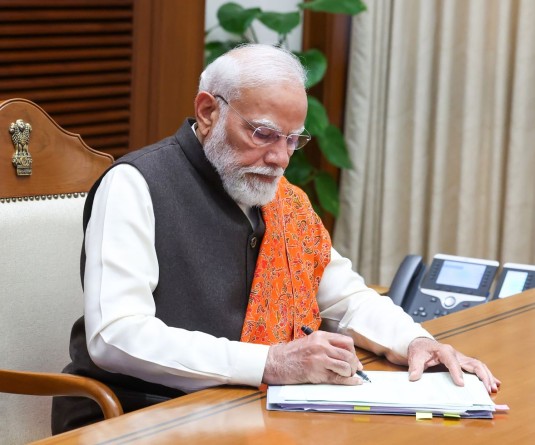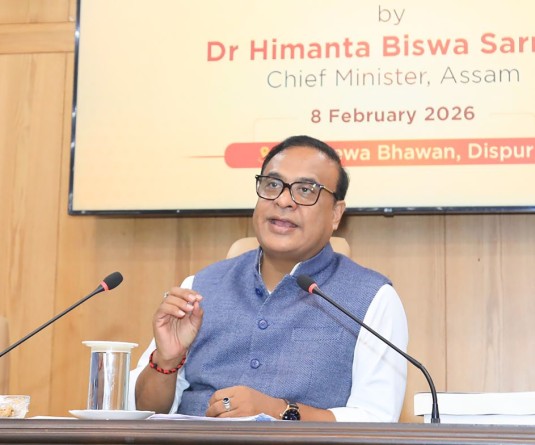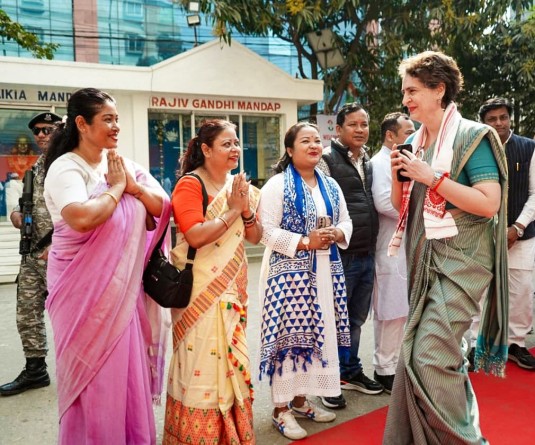
Guwahati, May 18 (NNN): Of the many factors that helped the Congress in Assam to come out with absolute majority in the recent assembly election, the winning of the Bengali speaking Hindus' confidence has been one important factor. In the 126-member Assam assembly, the Congress won 78 seats this time which is 14 more than the requisite number to form the government.
In the 2006 assembly poll, it was the Bodoland People's Front (BPF) who had come to the rescue of the Congress to form the government for the second successive term. That year, the Congress won 53 seats and desperately needed the 11 BPF legislators to remain in power. For the last 40 years or so, the Congress in Assam has been banking heavily on Bengali-speaking migrant Muslims. However, in the 2011 assembly poll, the Congress woke up and realized that the Bengali Hindu refugees are equally important.
According to the available data, the Bengali speaking Hindus made up 20 per cent of Assam’s population. And because of this sizeable population, the vote bank of the Bengali speaking Hindus is very important during elections. The BJP realized this fact as long ago as 1991, two decades before the Congress came to its sense on this front.
The BJP had started harvesting on the Bengali speaking Hindus since 1991 and won 10 seats in 1991, eight in 1996 and 10 each in 2001 and 2006. In the 2011 assembly election, the BJP ‘unexpectedly’ floundered, winning half as many seats as in 2006. More worrying for the party was the fact that it drew a blank in the Bengali-dominated Barak Valley in southern Assam where it had been bagging at least five seats (out of a maximum 15) in the past.
Conversely, the Bengali Muslims virtually deserted the Congress to side with perfume baron Badruddin Ajmal’s All India United Democratic Front (AIUDF) that won 18 seats in the minority-dominated areas. Barely a week after Tarun Gogoi’s Congress swept the polls by winning 78 of the 126 assembly seats in Assam, the BJP got down to analyzing what went wrong. The BJP had been seeking this status for Bengali Hindus in order to separate them from Bengali Muslims it wants to be tagged ‘infiltrators’ from Bangladesh. Assam is touchy about demographic invasion from Bengali Muslim migrants.
In the last assembly election in Assam, the Congress had won only six seats in Barak Valley, mostly those where Bengali Muslims are dominant. Gogoi’s pre-poll promise to Bengali Hindus – and the inclusion of this agenda on humanitarian grounds in Congress manifesto – did the trick for the party.
Not only from the Barak valley districts, but also from the Brahmaputra Valley constituencies the Congress has won seats where Bengali Hindus are a majority. These seats include Guwahati West, Morigaon, Hojai, Rangapara, Tinsukia and Dhekiajuli.
In the 2006 assembly poll, it was the Bodoland People's Front (BPF) who had come to the rescue of the Congress to form the government for the second successive term. That year, the Congress won 53 seats and desperately needed the 11 BPF legislators to remain in power. For the last 40 years or so, the Congress in Assam has been banking heavily on Bengali-speaking migrant Muslims. However, in the 2011 assembly poll, the Congress woke up and realized that the Bengali Hindu refugees are equally important.
According to the available data, the Bengali speaking Hindus made up 20 per cent of Assam’s population. And because of this sizeable population, the vote bank of the Bengali speaking Hindus is very important during elections. The BJP realized this fact as long ago as 1991, two decades before the Congress came to its sense on this front.
The BJP had started harvesting on the Bengali speaking Hindus since 1991 and won 10 seats in 1991, eight in 1996 and 10 each in 2001 and 2006. In the 2011 assembly election, the BJP ‘unexpectedly’ floundered, winning half as many seats as in 2006. More worrying for the party was the fact that it drew a blank in the Bengali-dominated Barak Valley in southern Assam where it had been bagging at least five seats (out of a maximum 15) in the past.
Conversely, the Bengali Muslims virtually deserted the Congress to side with perfume baron Badruddin Ajmal’s All India United Democratic Front (AIUDF) that won 18 seats in the minority-dominated areas. Barely a week after Tarun Gogoi’s Congress swept the polls by winning 78 of the 126 assembly seats in Assam, the BJP got down to analyzing what went wrong. The BJP had been seeking this status for Bengali Hindus in order to separate them from Bengali Muslims it wants to be tagged ‘infiltrators’ from Bangladesh. Assam is touchy about demographic invasion from Bengali Muslim migrants.
In the last assembly election in Assam, the Congress had won only six seats in Barak Valley, mostly those where Bengali Muslims are dominant. Gogoi’s pre-poll promise to Bengali Hindus – and the inclusion of this agenda on humanitarian grounds in Congress manifesto – did the trick for the party.
Not only from the Barak valley districts, but also from the Brahmaputra Valley constituencies the Congress has won seats where Bengali Hindus are a majority. These seats include Guwahati West, Morigaon, Hojai, Rangapara, Tinsukia and Dhekiajuli.






